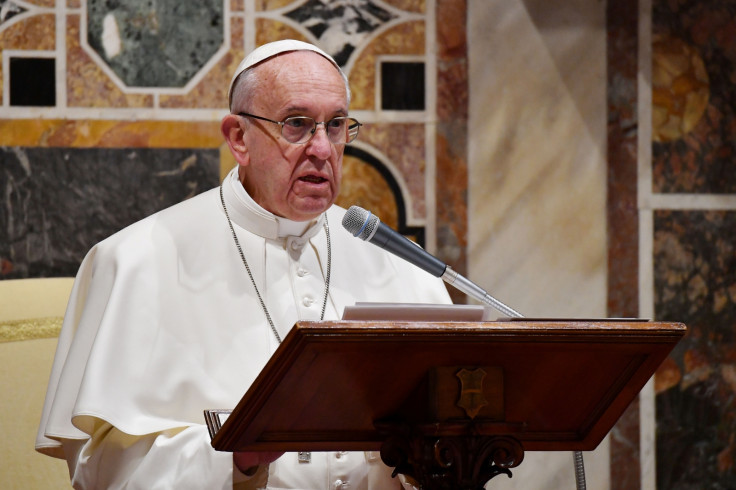Pope Francis reduces penalties for paedophile priests to a lifetime of prayer
The Pope faces widespread condemnation for his 'merciful' approach to child sex offenders.

Pope Francis's decision to reduce penalties for paedophile priests has been met with widespread condemnation from church officials and sex abuse survivors.
Applying his vision of a 'merciful church' the Pope previously sanctioned weaker canonical sentences for two sex offenders within the church, which were commuted to a lifetime of prayer and penance after they appealed for clemency.
Reverend Mauro Inzoli was found guilty by the Vatican of abusing boys as young as 12, in 2012 and was ordered to be defrocked.
However, following an appeal, in 2014 Francis reduced the penalty to a lifetime of prayer and to continue service in a restricted ministry.
Inzoli is prohibited from celebrating Mass in public or being near children, and is barred from his diocese. He has also been ordered to undergo five years of psychotherapy.
Pope Francis overruled the advice given to him by the Vatican Congregation for the Doctrine of the Faith, which recommended sterner penalties befitting the heinous crimes against children, but Inzoli was controversially, welcomed back to the priesthood.
However, after new evidence emerged he was been convicted by an Italian criminal court for sex crimes against five children, and now faces a second church trial.
The decision by Pope Francis to reinstate Inzoli was met with a public outcry in the northern Italian town of Cremona, where the abuse took place.
Marie Collins, an abuse survivor and founding member of Francis' sex-abuse advisory commission, said the Pope's rulings for lenient sentences sends out the wrong message to abusers and survivors of abuse.
"All who abuse have made a conscious decision to do so. Even those who are paedophiles, experts will tell you, are still responsible for their actions. They can resist their inclinations," she explained.
"While mercy is important, justice for all parties is equally important," she added. "If there is seen to be any weakness about proper penalties, then it might well send the wrong message to those who would abuse."
Church authorities have argued that defrocking paedophile priests will prevent the church exerting control over them, claiming that to do so would place them in the wider society where they may re-offend.
Vatican spokesman Greg Burke said the restrictions are intended to ensure the priest's conduct within the church is supervised and their access to children is prevented.
He defended the Pope's emphasis on mercy claiming that it applied to "even those who are guilty of heinous crimes and priests who are found to be abusers are permanently removed from the ministry but are not necessarily defrocked."
"The Holy Father understands that many victims and survivors can find any sign of mercy in this area difficult, but he knows that the Gospel message of mercy is ultimately a source of powerful healing and of grace," he said.
In contrast, during his eight-year papacy his predecessor, Pope Benedict XVI, defrocked 800 priests, who had raped and molested children and rarely granted clemency petitions, Mail Online reports.
© Copyright IBTimes 2025. All rights reserved.






















